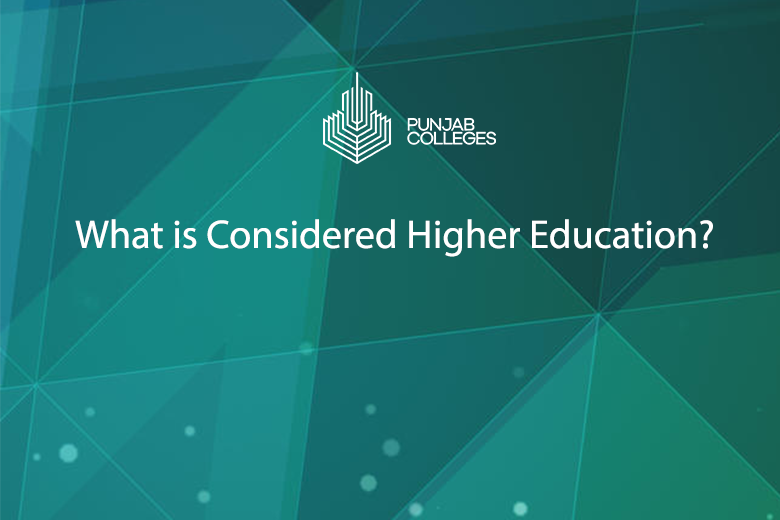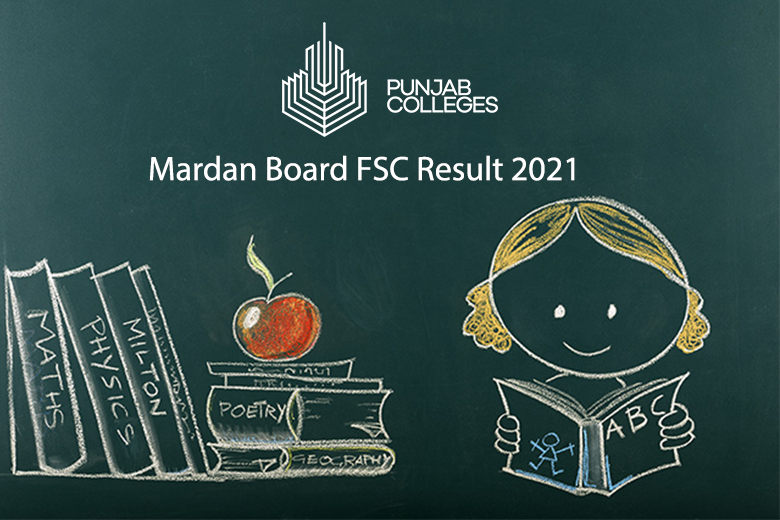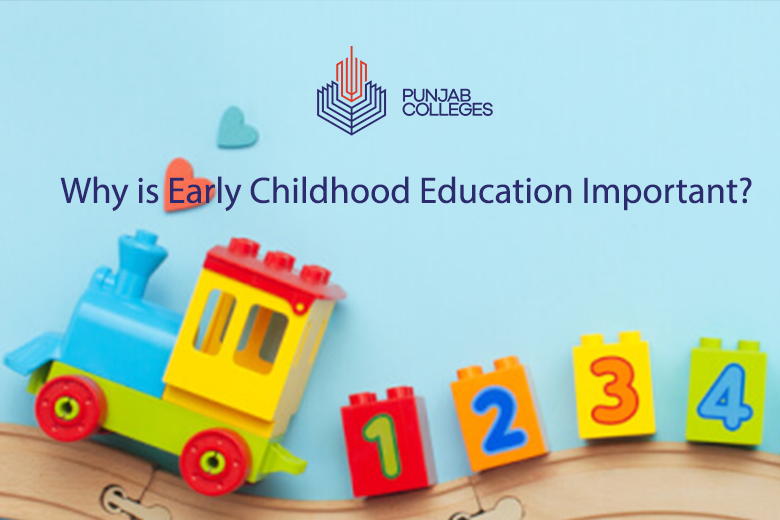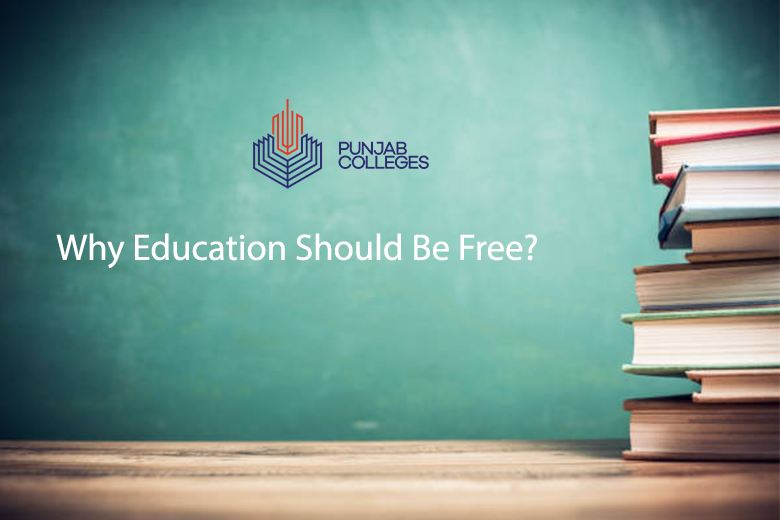What is considered higher education:

Higher education comes after the secondary educational period. It is the education that students usually get after they have completed their first two cycles of education in school and in the college. Since higher education is the professional learning, it is taught in the university. Many colleges also offer higher education depending on their levels.
The person before pursuing higher education must be very clear about their professional aptitude. They must be aware of how the job market is. Also about the career they wish to pursue.
The minimum that a university degree can last is three years, and it can be extended for a few more years. Student have the liberty to choose educational programs according to their convenience.
What are the three levels of education?
Education in the country has the following levels and study modalities:
Initial education. Nursery school. Basic Half. Non-University Superior and University. In addition, there is formal, non-formal, and adult education. Special Education facility has also been developed.
Initial Education has had different concepts. However, they have only one line. That of studying young children, from 0 to 4 years old. That says that Initial Education is “the first and early education that requires a specific treatment. That is because these first years are decisive and because the child is simply a child in the process of maturation, development and not a little man.
Before, the child was considered a small man, who had the same obligations as an adult. So, from a very young age they went to work and helped to financially support their homes.
This has changed little by little because it has been observed that people require specialized treatment during their early years (0-4 years). It can be said that the child begins to learn from the moment of conception. Giving feedback, the internal world of everything the child receives from the outside.
While handling the personality, we are managing a large part of what it means to be a man since everyone is different. Therefore, different ways of treating and teaching people are needed.
Educational service
That is why, Initial Education can be considered as the educational service that is provided to children under four years of age. However, it plays a great role to obtain the higher education later. It is important to enhance their integral development. It is understood that development is an integral process that studies perception, thought, language, among others of the human being.
Higher education gives an important educational and affective environment. It will allow the child to acquire a culture (skills, habits, values). Also it helps to develop their autonomy, creativity, and attitudes necessary in their personal and social performance.
It is the first level of formal education within the system. It normally comprises three years of study. Access to basic education is not a requirement to continue studies.
The first two years of training correspond in their content to the conception of initial education. And the third focuses on readiness for schooling. At the end, higher education gives you an exposure never like before. It enables you to professionally prosper in your field.
It has great importance as a support for the development of children. Especially those who are socially less favorable.
It has the following objectives.
- Stimulate the professional development of students through academic processes that take into account their affective, and social nature.
- Strengthen identity and self-esteem in their living spaces, family, school, and community.
- To develop the basic specialties of the students to guarantee their adequate preparation and incorporation into professional education.
- What is considered higher education? It is the step into expert educational field. It regularly comprises 2 to 5 years of study from.
- Six-year-old children will be admitted to first grade as long as they verify the ability and maturity to start in the first cycle.
- It seeks to respond to the basic learning needs, both general (universal) and particular (of individuals in their socio-economic and cultural context). Both aimed at improving the quality of life of the person and their community.
- It emphasizes the development of intellectual structures and skills that allow continuous learning towards higher education, rather than the acquisition of information.
- Higher education Promotes the development of personality and values for personal and social fulfillment and identity.
It has the following objectives.
- Contribute to the harmonious development of the personality in the family, school, and community both nationally and internationally.
- Instill a work discipline, order, responsibility, tenacity, and good self-esteem.
- Develop capacities that favor efficient development in daily life based on scientific, humanistic, and technological disciplines, as well as relationships with art.
- Improve expression and comprehension skills.
- Promote respect for the human person, natural and cultural heritage.
- Compliance with your duties and rights.
- Contribute to the apprehension, practice, and respect for ethical, moral, and civic values.
- It constitutes the top of the national educational system and represents the highest aspiration of scientific, humanistic, and technological training, within formal education.
- By its nature, it is a source of guidance for national life in all its spheres, considering the challenges that pose a need in continuous transformation.
- Its purpose is to train professionals in all areas to contribute to economic, cultural, and social development and growth, through science and technology aimed at improving the quality of life of the population.
- It has the following objectives.
- To train competent professionals with vocation and moral principles.
- Promote research in all its forms.
- Provide a social service to the community.
- Cooperate in the conservation, dissemination, and enrichment of the cultural legacy in its national and universal dimensions.
What is the purpose of higher education?
The purpose of higher education:
The question what is considered higher education? From an individual’s perspective, higher education provides the student with academic training to access the job market. His professional vocation and personal interests and the situation of the labor market about the studies chosen.
This means that university research goes beyond obtaining a degree or a specific project, since the whole of society benefits from the knowledge obtained in the research task.
What are the benefits of higher education?
Benefits of higher education:
It is beneficial for the individual and society. It improvises and develops the economic and non-economic perspective
This article is part of a broader initiative aimed at collecting evidence on the question what is considered higher education and benefits of higher education.
The four steps included are the following: general (non-economic) benefits for the individual, general (non-economic) benefits for society, economic benefits for the individual, and economic benefits for society.
This article analyzes the impact on society as a whole through graduates and the transfer of knowledge. An evidence shows that higher levels of education are related to a range of social, well-being and cultural benefits for the individual. Also for their families, and society” and recommends “advancing research to better understand the impact of higher education”.
It includes only benefits associated with the completion of higher education, not those derived from research, spin-offs. These benefits are also associated with international students (tuition fees, for example), etc.
Furthermore, it is also indicated that in some cases there is a relationship between the educational level (qualification) and the benefit. The impact has more to do with “more years of education”.
The existence of close ties between the benefits for the individual and society, thus “the higher an individual’s trust and tolerance towards others. The higher levels of trust and social cohesion in general.
What is the importance of higher education?
Higher education is the main path for professional development. Through this, there is a strong economic, labor, family, and social impact and professional growth are increased. Also the possibilities and source of employment, and with it better conditions of employment.
It has a great impact on life. We can see a great difference between what they study in an advanced year or what they have graduated, about what they have not accessed it.
At the level of areas of social risk, when higher education can increase the population, poverty is greatly reduced. Values are strengthened since technological and educational tools are obtained that allow it.
When a student wishes to elevate his preparation to a professional level, his option is to resort to higher education. Since it also provides deep knowledge, the ability to work in a team, design companies, manage them and achieve competitive results. Both in groups and individually.
In centers of educational excellence with an already updated global education, students acquire quality knowledge that allows them to contribute to the development of the economy and society in the country. Along with a notable rise in their standard of living. They can develop habits and skills for research and innovation.
A college education provides skills necessary to develop yourself in the field to work in specialized areas such as medicine, engineering, business, and science.
The way of teaching is changing and now you can prepare remotely, in blended classes, or the traditional model.
The increase in higher educational levels is transformed into a lower incidence of poverty and better economic and health results for the country in general.
Studying your way to a degree will allow you to get a better job in the future. You can open your business, or simply give you the ability to harness your skills in creating the life of your dreams.
Investing in your higher education
Investing in your higher education will help you succeed in life because you will be preparing yourself to learn to solve the problems that life presents you with.
Prepare for your future and to support your community in its economic and social advancement. Now more than ever you must study and adapt to the changes that are coming. Study online, study in the traditional modality, but do not stop doing it.
In a higher education center, over the days, the evolution that transforms students into better people with greater and more extensive preparation. They come up with new knowledge that allows them to contribute more in all areas.
Also a new phase in their culture when acquiring new learning related to ICTs (Information and Communication Technologies). Because they are being instructed in a context that changes the way of interacting with the environment and other people. They obtain a different perspective from the traditional ones. They place it in conditions that allow it to live up to a highly dynamic society. A society that constantly stimulates it with multimedia means that have a global reach.
Having a university degree changes the projection of the future and the present. Since it has achieved a high level of specialization that allows it to enter a labor market in constant development and evolution. There applicants who have not reached it are chosen.
Now you know what is considered higher education. From this opportunity, the graduates and even the other students have opportunities to be part of different groups. They can develop extracurricular activities that contribute to their professional performance as a result of different interpersonal relationships. In addition, at the end of their career, it is possible to opt for doctoral and postgraduate studies that make them professionals with greater knowledge and a higher job and social recognition.
Read more Articles:
What is Classical Education?
What is Compulsory Education?









